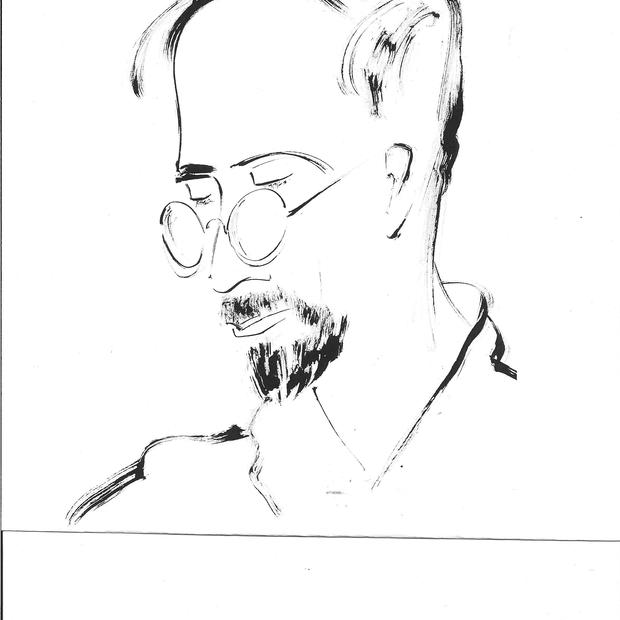At midday on a chilly January Friday, 400-plus people pile into a drafty, plain white building perched between a Mormon Church and a 7-Eleven in Bellevue’s polyglot Lake Hills neighborhood. This used to be a Korean church; now it’s the Islamic Center of Eastside, ICOE or the Bellevue Mosque for short, and this is jumu’ah, the weekly prayer service at the heart of Islamic worship.
The hexadecagonal main hall is packed to the walls with men, some wearing taqiyah prayer caps, some in wool watch caps, many bare-headed. They come from Saudi Arabia, Yemen, Egypt, Iraq, Kenya, Sudan, Mali, Pakistan, Bangladesh, Malaysia, China, Canada, South America — “over 100 countries,” says Khawja Shamsuddin, a retired banker from Bangladesh who’s active in the ICOE community.

Khawja Shamsuddin, a retired banker from Bangladesh, volunteers at both the Crossroads Mini City Hall and the mosque. Photo: Tom James.
Friends meet, greet and squeeze in. Standing in front with his back to the congregation and a hand cupped over one ear, muezzin Rana Faisal chants the call to prayer in a commanding but melodious tenor, edged with vibrato.
As a guest I’m given a chair in back, but I soon fold it against the wall to make room for one more worshipper. Outside the hall, women ascend to a second chamber, where they hear the sermon over a loudspeaker; some spill over into the kitchen. (At a larger, less traditional mosque in Redmond, men and women worship in the same room, with the women in back.) Another upstairs room accommodates male overflow. Yet more men spread their prayer rugs in the parking lot.
Not that there’s room to spare there; the lot has only about 30 spaces. Many Muslims have moved into nearby apartment complexes, from which they walk to prayers. But the lack of parking would still spell trouble if ICOE weren’t on good terms with the Mormons next door. “We’ve loved having them for neighbors,” Shamsuddinr tells me. “They let us use their parking on Fridays, and they can use ours when they want to.”
The imam, Sheikh Faizal, a portly man with a thick beard, white tunic, and stern expression, delivers the first part of the sermon, something like a Christian homily, in tones by turns gentle, dialectical and emphatic. He speaks in English, but repeats key words — the words his audience is most likely to know — in Arabic. He discusses what’s elsewhere called “turning the other cheek,” invoking historical models of forbearance and forgiveness. He mentions Jesus’s role: “To complete the Torah” and anticipate the Prophet.
The second part of the service is a supplication, in Arabic, with much standing, kneeling and bowing to the floor. Afterward, Shamsuddin steps to the front and announces a drive to collect cash — “good clothes, clothes you would wear, and money is always welcome” — for victims of Syria’s civil war. He stands at the door as the congregants, smiling and chatting, file out. The parking lot soon clears, and is ready for the Mormons.
ICOE wants to replace its somewhat ramshackle quarters, if it can work out a plan that fits within city setback restrictions. But Shamsiddar says even a new building wouldn’t accommodate more worshippers, beyond letting those in the parking lot come in off the asphalt. And this is the only mosque in a city with a fast-growing Muslim population.
Look for more stories presented by Crosscut and Seattle magazine on how Puget Sound social, civic, business and political issues are shaping our community, culture and future.

